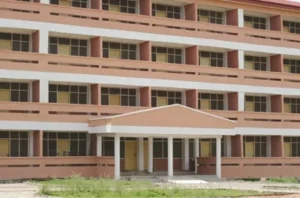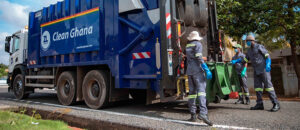
A deadly confrontation over sand-winning operations near Nsawam claimed the lives of five men on April 29, 2025, sparking a full-scale investigation by the Eastern South Regional Police.
The violence unfolded in the Asiyaw area near Akwane-Dobro, where rival groups reportedly clashed over control of sand extraction activities. Upon arrival, law enforcement officers discovered the bodies of five adult males who had sustained fatal gunshot wounds.
Police retrieved a Toyota Tacoma, a Toyota Tundra, and five heavy-duty motorbikes from the scene. Evidence collected also included a loaded pump-action firearm with 17 live cartridges, alongside four spent cartridges, three 7.62/39mm shells, and one 9mm casing. The deceased have been transported to the Police Hospital morgue for autopsy and formal identification.
Authorities have appealed to community members to assist with information that could aid in capturing those involved. “We remain committed to holding the perpetrators accountable and preventing further violence,” stated a police representative.
The incident brings renewed focus to the ongoing challenges surrounding sand-winning in Ghana—a practice involving the excavation of sand for construction purposes. Despite its economic value, poorly regulated and illegal operations frequently trigger territorial disputes, especially in areas like Nsawam. In previous years, such tensions have escalated into deadly encounters.
Environmental officials have long warned of the consequences of unchecked sand-winning, citing resource depletion, environmental degradation, and community instability. A prior assessment identified over 50 sand-related conflicts in the Eastern Region alone, pointing to the urgent need for regulatory reform and improved conflict resolution mechanisms.
As investigations continue, the incident underscores the broader need for comprehensive policies that prioritize both development and public safety. Without proper oversight, the high demand for construction materials may continue to fuel violence and threaten community security.
FAQs: Sand-Winning Conflict in Asiyaw Near Nsawam
1. What happened in Asiyaw near Nsawam on April 29, 2025?
A violent clash broke out between two groups over control of sand-winning operations, resulting in the deaths of five men.
2. Who are the victims?
All five victims were adult males. Their identities are yet to be confirmed, pending autopsy and further investigation by authorities.
3. What is sand-winning?
Sand-winning is the extraction of sand, usually for use in construction. In Ghana, this practice is both legal and illegal depending on whether operators are licensed.
4. Why did the violence occur?
The confrontation stemmed from a dispute between rival groups over control of the sand-winning site, which is a lucrative but contested resource in the region.
5. What did the police recover at the scene?
Police found two vehicles (a Toyota Tacoma and a Toyota Tundra), five heavy-duty motorbikes, a loaded pump-action gun with 17 cartridges, four empty shells, three 7.62/39mm casings, and one 9mm shell.
6. What steps are the police taking?
Authorities have launched an investigation and are urging the public to provide information to help identify and arrest those responsible.
7. Why is sand-winning controversial in Ghana?
The practice often leads to environmental degradation and disputes due to a lack of regulation, illegal operations, and competition over valuable land.
8. Has this type of violence happened before?
Yes. Reports have documented numerous sand-related conflicts, particularly in the Eastern Region, where regulatory oversight is limited.
9. What are the long-term solutions being proposed?
Experts call for stricter licensing, environmental monitoring, community dialogue, and enforcement of land-use laws to prevent further violence.
10. How can residents stay informed or help?
Residents can stay updated through official police channels and are encouraged to report suspicious activity or provide tips that support ongoing investigations.





